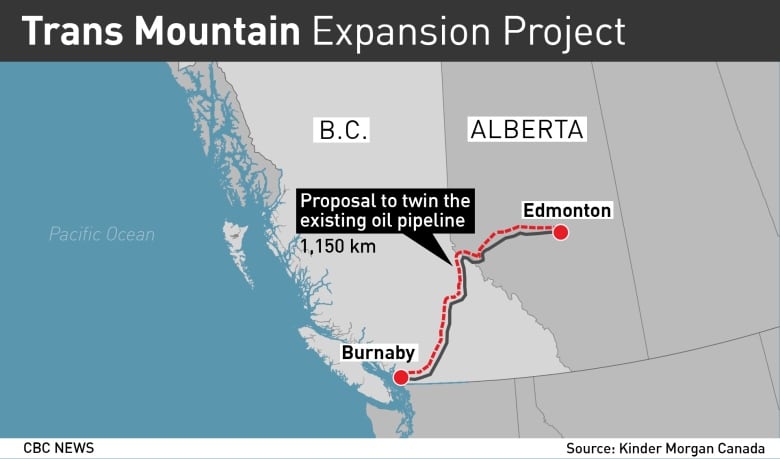Musqueam withdraws from appeal case against Trans Mountain expansion approval
Councillor says they are pursuing other options

The Musqueam First Nation has withdrawn from the Federal Court of Appeal case against the approval of the Trans Mountain pipeline expansion to pursue other options.
"We still have some unresolved issues with respect to the approval but we feel it's no longer in our best interest to proceed with the [judicial review] at this time," said Musqueam Councillor Wendy Grant-John.
"We're in fact exploring other opportunities and options with regards to the recognition of our rights and further reconciliation moving forward for Musqueam."
Musqueamfiled its notice of discontinuance with the Federal Court of AppealMonday, the same day the trial began. The case is expected to be before the court for two weeks.
Grant-John said she couldn't speak publicly about what those other opportunitiesmight be, only that "it's something that we are exploring and looking at within the community."
Musqueam was one of seven First Nations in the consolidated lawsuit against Ottawa's approval of the pipeline expansion, along with the cities of Vancouver and Burnaby, and a pair of environmental groups.

The $7.4 billionproject was approved, with conditions, by the federal government in November of last year. The expansion would see the existing Trans Mountain pipeline twinned along its route from Edmonton to Burnaby, nearly tripling its current capacity, allowing it to transport 890,000 barrels of oil products a day.
Much of those products would be exported to Asia and the increased pipeline capacity would lead to a significant increase in tanker traffic through the Burrard Inlet, from approximately five to 34 vessels a month.
It was very much a decision by council looking at the legal arguments and what our direction is to protect our rights and title- CouncillorWendy Grant-John
The community has considered pulling out of the case for a while, said Grant-John.
"It's not a decision that was just made at the spur of the moment," she said.
"It was very much a decision by council looking at the legal arguments and what our direction is to protect our rights and title, and felt that at this point in time we feel it's better to go and see if we can find other resolutions to that reconciliation and recognition."
When Musqueam first announced it would pursue a judicial review of the expansion approval in January, it stated in a press release that "Musqueam was not meaningfully consulted nor accommodated through the NEB process, nor has the federal government properly addressed the possible impacts to Musqueam's established fishing rights.
"The [Trans Mountain] project will threaten the Musqueam people's lands and waters," they added in the release. "In the event of an inevitable accident, Musqueam's fishing resources and culture will be negatively impacted by the Kinder Morgan project."
Musqueam respects the First Nations who are continuing with the judicial review at the Federal Court of Appeal, said John-Grant.
"I do want to underscore that we respect and acknowledge all the other First Nations and indeed the municipalities for taking the course that they are," she said.













_(720p).jpg)


 OFFICIAL HD MUSIC VIDEO.jpg)
.jpg)



























































































